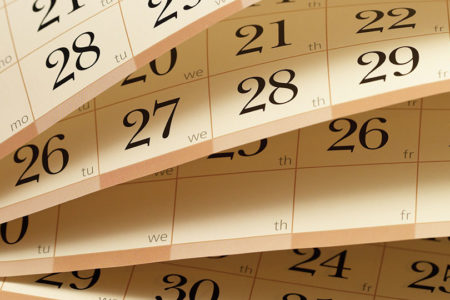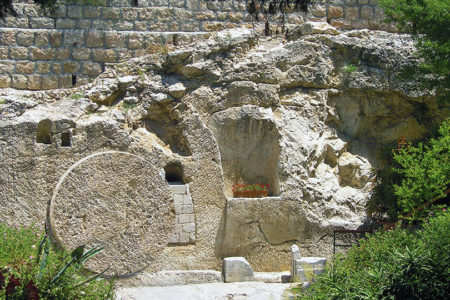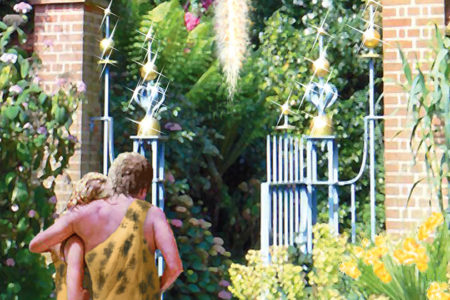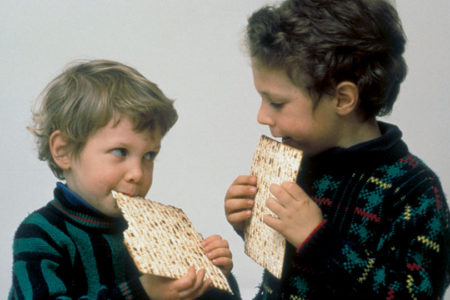My Seder Memories
One of my mother’s favorite singers is Barbra Streisand. A recording of her singing “The Way We Were” played in the background when we celebrated my parents’ 50th wedding anniversary many years ago. It was the perfect song to play while viewing a lifetime of family photos. Both my parents wiped away tears as the memories rolled by.
The way we were is also a perfect way to describe the sentiments many Jewish people feel as they gather to celebrate another Passover seder. Because seders are often held in the same home year after year, they become a type of timeline that links the past to the present. It takes but a few moments seated around the dinner table to see the effects of time. New people are born, young people marry, old people die, and the cycle goes on.
My earliest memories of our family Passover date back to my grandmother. She ran the show. A Polish immigrant and observant Jewess, she singlehandedly determined what each seder would be like. Her goal was consistency. Taking pride in a well-executed plan, she paid attention to every detail weeks before the holiday arrived. Her top priority was preparing her home, which involved several strenuous but time-honored activities.
First, she cleaned. Because Jewish people must eat nothing with leaven for eight days, all leaven must be removed from the house. I like to think that Jewish people invented spring cleaning, since Passover arrives in the spring!
Then my grandmother would bring out her special dishes, utensils, goblets, and pots and pans. All had been meticulously stored in an environment that guaranteed no leaven ever touched them during the year.
My grandmother had other special things for the seder, too: a beautiful goblet for Elijah, a special seder plate, and beautiful candelabra for the candles she would light. She laid pristine white yarmulkes (skull caps) at each of the chairs where the men (including boys) would be seated.
Her menu, although predictable, was highly anticipated. It was common for us to steal a taste while she was in the midst of preparation. Her gefilte (Yiddish for “boiled”) fish never came from one of those jelly-packed, supermarket jars. She bought fresh fish. She purchased freshly slaughtered chicken and used every bit of it in a special dish or to flavor other foods. (Chicken feet are a must for flavoring matzoh ball soup.) She harvested her own horseradish and ground it by hand to ensure the herbs were indeed bitter. Her chopped chicken liver was a delicacy. And she always had the staples of carrot tzimmes, stuffed kishke, and the list goes on. It was a feast fit for a king.
Passover desserts included sponge cake, candy, and macaroons, all laboriously prepared without yeast or leaven in her own kosher kitchen.
As we sat around the table, we read, sang, and prayed all that was in our Haggadah. Our seders were long—very long. The children (my sisters, cousins, and I) sat far enough away from the adults to provide ample opportunity for whispering without intervention. My older cousins provided the entertainment that always produced side-splitting laughter. We needed it, too, because sitting around a table for hours waiting to eat could be a difficult experience.
As I look back, I remember three distinct highlights of my past seders: asking the four questions, opening the door for Elijah, and finding the afikomen.
The youngest child always chants the four questions in Hebrew. They address all the things we do that are different from a normal night’s activities.
Opening the door for Elijah was a thrill because I believed he was really coming, and I wanted to see the Messiah. Every proper seder sets a place for this ancient Jewish prophet whom Scripture teaches will be the forerunner of the Messiah. Traditionally, Judaism looks forward to Elijah’s coming because it means the Messiah won’t be far behind.
The afikomen is a special piece of matzoh that is hidden away and must be found before the seder can end. So all the children eagerly look for it, and the one who finds it receives a reward. Finding the afikomen meant I could ask for whatever I wanted as my reward. Once I requested a bicycle, only to have my father tell me I had two choices: a dollar or nothing.
The last Passover I spent with my extended family brought many memories of the smiles of bygone years. We gathered in my younger sister’s home. My mother, who long ago had taken my grandmother’s place, was now replaced by my sister. The faces around the table had all changed: no grandparents, no cousins, no aunts, no uncles. It was a sad reminder that the people we love die, and nothing stays the same.
When the time came to open the door for Elijah and to hunt for the afikomen, I reflected on how different my life is today.
I am no longer a child, wondering if the Messiah will ever come. I could participate in the seder knowing that a Levite named John the Baptist announced His coming and that the afikomen—the middle of three pieces of matzoh—affirmed that the middle Person of the Godhead, the Lamb of God, had taken away my sin. Afikomen is the only Greek word used in a seder. And it means “He came.”
Not everyone around the table that day saw what I could see. As I prayed silently for my family, I thought, The way I used to be is not the way I am now. I was made new by the Passover Lamb. And though I have fond memories of the way we were, I can look forward with joy to the way things someday will be when He returns.







